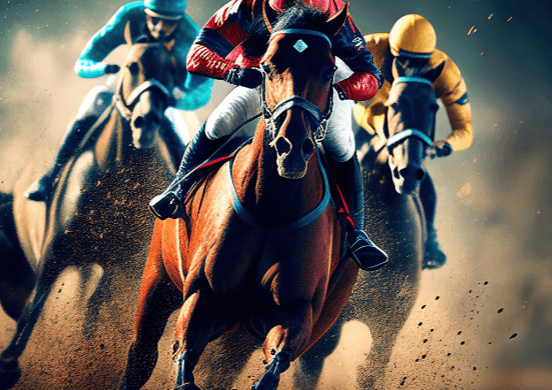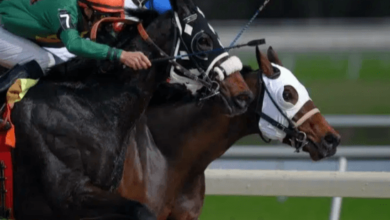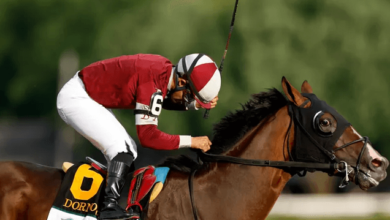How do you prepare a horse for international races and travel?

Introduction
Preparing a horse for international races and travel is a meticulous process that requires careful planning, attention to detail, and a deep understanding of the horse’s physical and mental well-being. The goal is to ensure that the horse arrives at its destination in peak condition, ready to compete at the highest level. This process involves everything from specialized training programs to stringent health checks, proper nutrition, and understanding the legal requirements for transporting horses across borders. Whether you’re a seasoned trainer or a horse owner preparing for your first international race, this guide provides a comprehensive look at what it takes to prepare a horse for the challenges of international competition and travel.
Understanding the Importance of Preparation
International races are high-stakes events that require a horse to perform at its best. The challenges of long-distance travel, coupled with the stress of a new environment, can significantly impact a horse’s performance. Therefore, preparation is not just about physical training; it encompasses the horse’s overall health, psychological readiness, and adaptability to new surroundings. Proper preparation reduces the risk of injury, ensures compliance with international regulations, and ultimately increases the chances of success on race day.
Physical Conditioning for International Races
Building Endurance and Strength
Physical conditioning is the cornerstone of preparing a horse for international races. The training regimen should focus on building endurance, strength, and speed. This involves a combination of long, slow distance work to build aerobic capacity, interval training to improve anaerobic fitness, and strength training exercises such as hill work or resistance training. The intensity and duration of these workouts should be gradually increased to avoid overtraining and ensure the horse peaks at the right time.
Tailoring Training to the Race Type
Different types of races require different types of conditioning. For instance, a horse preparing for a flat race will need to focus on speed and stamina, while a horse preparing for a steeplechase will need to work on agility and jumping ability. Understanding the specific demands of the race is crucial in tailoring the training program to meet those needs.
Monitoring Progress and Adjusting Training
Regular monitoring of the horse’s progress is essential to ensure that the training program is effective. This includes tracking the horse’s heart rate, recovery time, and overall fitness levels. Adjustments should be made based on the horse’s response to training, ensuring that it remains in peak condition without overexertion.
Health Checks and Veterinary Care
Pre-Travel Veterinary Examination
Before embarking on international travel, a comprehensive veterinary examination is mandatory. This examination ensures that the horse is free from any contagious diseases and is fit for travel. The veterinarian will check for any signs of illness, injuries, or conditions that could be exacerbated by the stress of travel. Blood tests, vaccinations, and other necessary health certifications are also part of this process.
Maintaining Health During Travel
The health of the horse during travel is paramount. Horses can be prone to respiratory issues, dehydration, and colic during long journeys. To mitigate these risks, it is crucial to monitor the horse’s health closely during travel. This includes ensuring proper ventilation, maintaining hydration, and providing adequate rest periods during the journey.
Post-Travel Recovery and Care
Upon arrival, the horse should undergo a thorough health check to ensure it has not suffered any ill effects from the journey. It is also important to give the horse time to acclimate to the new environment before resuming intense training. This recovery period helps the horse adjust to the new climate, time zone, and other environmental factors, reducing the risk of injury or illness.
Nutritional Preparation for International Races
Developing a Nutritional Plan
Nutrition plays a crucial role in a horse’s performance, especially when preparing for international races. A well-balanced diet that provides the necessary energy, vitamins, and minerals is essential for maintaining the horse’s health and optimizing performance. The nutritional plan should be tailored to the horse’s specific needs, taking into account its workload, metabolism, and any dietary restrictions.
Managing Nutrition During Travel
Traveling can disrupt a horse’s eating habits and digestion. To minimize these disruptions, it is advisable to maintain the horse’s usual diet as much as possible during travel. This includes packing enough of the horse’s regular feed and supplements for the journey. Hydration is equally important, and access to clean, fresh water should be provided at all times.
Adjusting Nutrition Post-Arrival
Once the horse arrives at its destination, its nutritional needs may change due to the new environment, climate, and the demands of the upcoming race. It is important to monitor the horse’s weight, appetite, and overall condition and adjust the diet accordingly. Consulting with a nutritionist can help ensure that the horse receives the appropriate nutrients to sustain peak performance.
Psychological Preparation and Stress Management
Acclimating to New Environments
Horses are creatures of habit, and changes in their environment can cause stress and anxiety. To prepare a horse for the challenges of international travel, it is important to gradually expose it to new environments, sounds, and stimuli. This can include traveling short distances, spending time in different stables, or simulating race-day conditions during training.
Managing Travel-Related Stress
The stress of travel can affect a horse’s performance and overall well-being. To minimize stress, it is important to maintain a calm and consistent routine before, during, and after travel. Familiar items such as the horse’s usual bedding, feed, and grooming tools can help provide comfort during the journey. Additionally, ensuring that the horse has a trusted companion or handler during travel can help reduce anxiety.
Mental Conditioning for Race Day
Mental conditioning is just as important as physical conditioning. Horses need to be confident, focused, and responsive on race day. This can be achieved through consistent training routines, positive reinforcement, and building a strong bond between the horse and rider. Practicing race scenarios, including the start, turns, and finish, can help the horse become familiar with the race-day experience and reduce nervousness.
Legal Requirements and Documentation
Understanding Import and Export Regulations
International travel with a horse involves navigating complex import and export regulations. Each country has its own set of requirements regarding health certifications, vaccinations, quarantine procedures, and documentation. It is essential to research these requirements well in advance and ensure that all necessary paperwork is completed accurately and on time.
Obtaining Health Certificates and Permits
Health certificates are a critical component of international horse travel. These certificates, issued by a licensed veterinarian, confirm that the horse meets the health standards required by the destination country. In addition to health certificates, certain countries may require specific permits or endorsements. It is important to work closely with a veterinarian and an experienced shipping agent to ensure that all legal requirements are met.
Navigating Quarantine Procedures
Many countries require horses to undergo a quarantine period upon arrival to prevent the spread of diseases. The length and conditions of quarantine vary depending on the country. Understanding these procedures and planning accordingly is essential to avoid delays and ensure that the horse is ready to compete on schedule.
Transportation Logistics and Planning
Choosing the Right Transportation Method
The method of transportation plays a significant role in the horse’s comfort and safety during travel. Options include air transport, sea transport, and overland transport by truck or trailer. Air transport is the most common method for international travel, as it is the fastest and most efficient. However, each method has its own set of considerations, including cost, duration, and the horse’s comfort.
Preparing the Horse for Air Travel
Air travel is often the most stressful form of transportation for horses. To prepare, the horse should be gradually introduced to the loading process and the confined space of the aircraft’s cargo hold. Ensuring that the horse is calm and comfortable during the flight is crucial. This can be achieved by using familiar bedding, packing sufficient feed and water, and ensuring the horse is accompanied by an experienced handler.
Managing Logistics and Timing
Timing is critical when planning international travel for a horse. It is important to coordinate the logistics of transportation, including booking flights, arranging ground transport, and ensuring that all paperwork is completed on time. The goal is to minimize the time spent in transit and reduce the horse’s exposure to stressful situations.
Communication and Coordination with Race Officials
Establishing Contact with Race Organizers
Communication with race organizers is essential to ensure a smooth transition upon arrival. This includes confirming the horse’s entry, understanding the race schedule, and coordinating with the veterinary team on-site. Early and clear communication helps avoid any last-minute surprises and ensures that the horse is ready to compete.
Understanding Race Regulations and Requirements
Each race has its own set of regulations regarding equipment, drug testing, and horse welfare. It is important to familiarize yourself with these regulations to avoid any penalties or disqualifications. This includes understanding the rules on the use of whips, spurs, and other equipment, as well as the procedures for post-race veterinary inspections.
Coordinating Pre-Race and Post-Race Care
Pre-race care includes ensuring that the horse is properly warmed up, hydrated, and mentally prepared for the race. Post-race care is equally important and involves cooling down the horse, rehydrating, and providing any necessary veterinary care. Coordinating these efforts with the race organizers and veterinary team helps ensure the horse’s well-being before, during, and after the race.
FAQs
How do you acclimate a horse to a new environment? Acclimating a horse to a new environment involves gradually introducing it to different surroundings, sounds, and stimuli. This can include short trips to new locations, spending time in different stables, and simulating race-day conditions during training.
What are the common health risks for horses during international travel? Common health risks during international travel include respiratory issues, dehydration, colic, and stress-related conditions. Proper ventilation, hydration, and monitoring during travel can help mitigate these risks.
How important is nutrition in preparing a horse for international races? Nutrition is crucial in preparing a horse for international races as it directly impacts the horse’s energy levels, recovery, and overall performance. A well-balanced diet tailored to the horse’s specific needs is essential.
What legal documents are needed for international horse travel? Legal documents required for international horse travel typically include health certificates, import/export permits, and vaccination records. Each country has specific requirements that must be met for entry.
How do you manage a horse’s stress during long journeys? Managing a horse’s stress during long journeys involves maintaining a calm routine, using familiar items like bedding and feed, and ensuring the horse has a trusted companion or handler during travel.
What should you do if a horse shows signs of illness after travel? If a horse shows signs of illness after travel, it should be immediately examined by a veterinarian. Early detection and treatment are crucial to prevent the condition from worsening and ensure the horse is ready to compete.
Conclusion
Preparing a horse for international races and travel is a complex process that requires a holistic approach, encompassing physical conditioning, health management, nutrition, psychological preparation, and meticulous planning of logistics. By paying attention to every detail, from training to travel logistics, horse owners and trainers can ensure that their horses arrive at their destinations in peak condition, ready to perform at their best. The key to success lies in thorough preparation, understanding the unique needs of the horse, and working closely with veterinarians, nutritionists, and race officials to ensure a smooth and successful journey.





